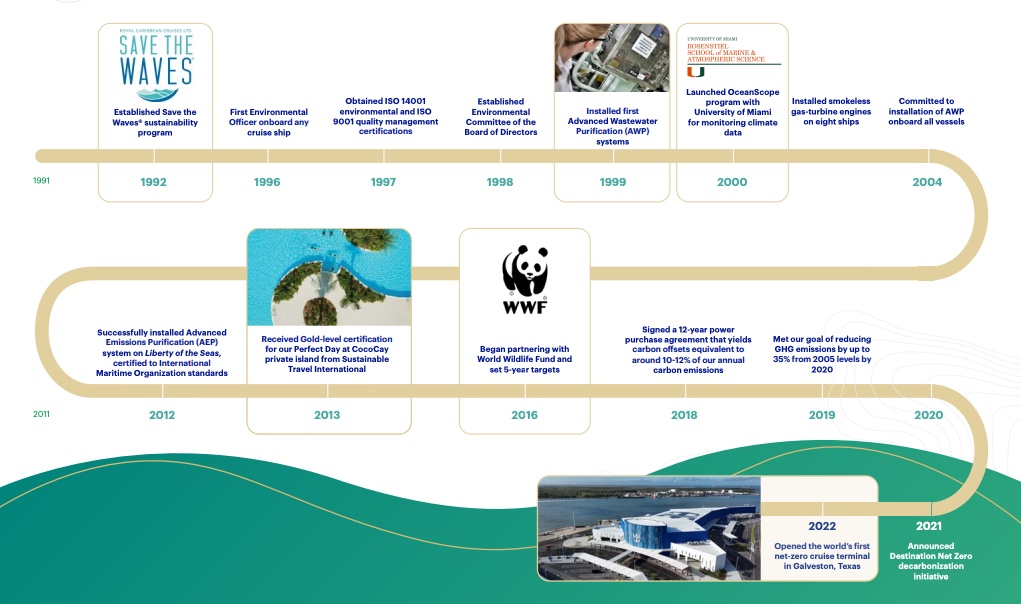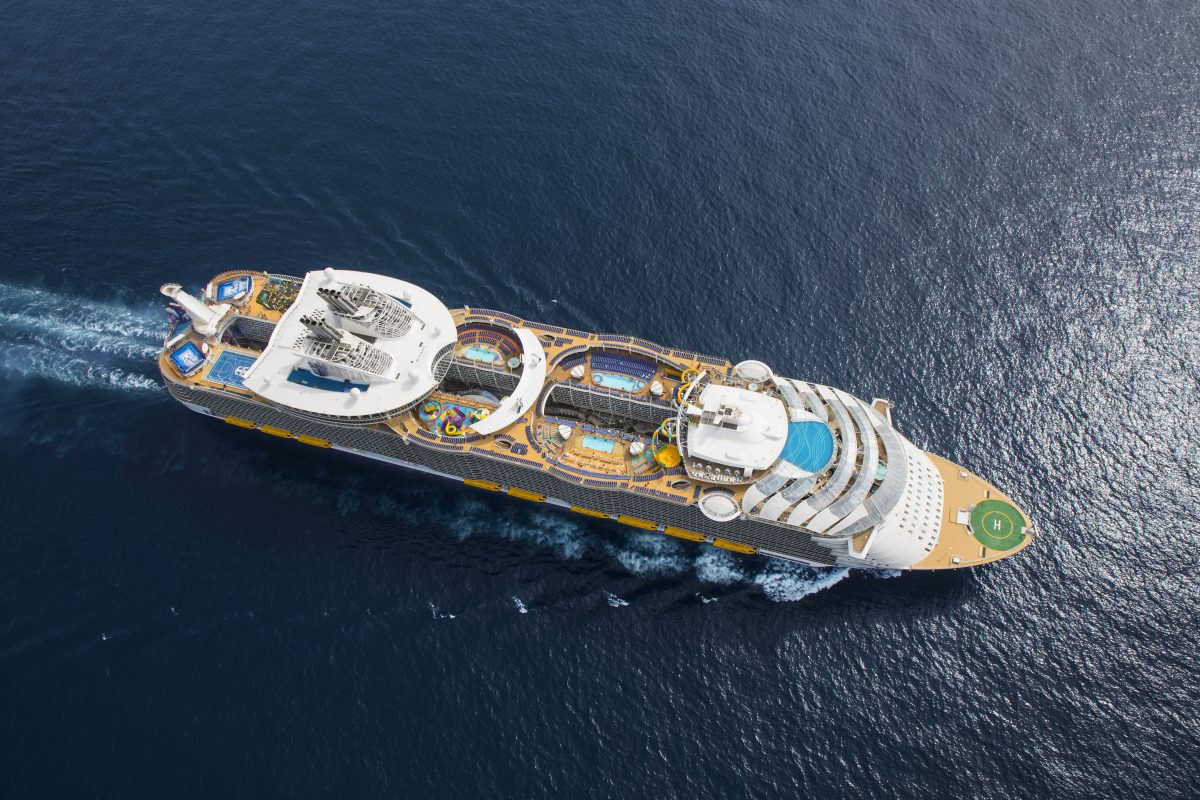Since its inception, Royal Caribbean Group’s North Star has been delivering the best vacation experiences responsibly. Across its award-winning brands and its most innovative fleet yet, the company is charting a bold and sustainable course for the future of cruising.
The company’s SEA the Future platform highlights its deep commitment to the environment, the communities it visits, and its people – a passion that continues to grow stronger every day. From introducing the first-ever environmental officer onboard a cruise ship in 1996 to recently launching the first waste-to-energy system to reach the high seas, Royal Caribbean Group pushes the envelope on sustainability and innovation.

The next step on the journey
As the company looks at the unfolding future ahead, it has set its sights on Destination Net Zero, a decarbonization strategy to reach net-zero emissions by 2050.
The path to achieve net zero emissions includes ambitious milestones along the way like double-digit reduction of carbon intensity by 2025 and introducing a net zero cruise ship by 2035.
Taking strides towards these goals, Royal Caribbean Group is pulling several levers as part of its approach.
Biofuel, methanol and beyond
Across the cruising and shipping industry, companies are focused on finding the energy source of the future, that can safely fuel ship operations while cutting carbon emissions. However, there is no front runner. For that reason, Royal Caribbean Group is exploring several low carbon-based solutions while building flexibility into its newest ships to ensure adaptability as future fuels become available.
While growing a portfolio of alternative fuels, including biofuels and methanol, the company is also investing in groundbreaking technologies, like fuel cell systems that are being adapted for maritime use at a large scale. In 2023, Royal Caribbean Group completed three successful biofuel trials — confirming that “drop in” percentages of the alternative fuel can be used without needing to modify engines or impact onboard technical systems. In addition, they started construction on Celebrity Xcel, the first-ever tri-fuel engine capable of running on methanol.

Energy efficiency
Finding a new type of fuel is only one part of the journey. Royal Caribbean Group is introducing methods that reduce emissions today, ultimately advancing the decarbonization of its operations.
Hundreds of initiatives across ships contribute to energy efficiency. From novel solutions like air lubrication systems that use microscopic bubbles to coat the hull and reduce friction, to harnessing and repurposing excess heat engine, they are making every kilowatt count.
Teamwork is key
Recognizing the power of collaboration, Royal Caribbean Group believes that collective action across industries and disciplines is necessary for reaching cruise and maritime decarbonization goals. The company prides itself on working with strategic partners, ports, industry peers, governments and more to accelerate sustainable ship design and their transition to the energy platform of the future.
For instance, its partnership with Mærsk McKinney Møller Center for Zero Carbon Shipping lets the company tap into a broad network of innovators offering unique perspectives that help shape a more comprehensive strategy.
On their pursuit for a better tomorrow, Royal Caribbean Group is using every tool it has, to continue to improve current operations while designing for a new era of cruising.





